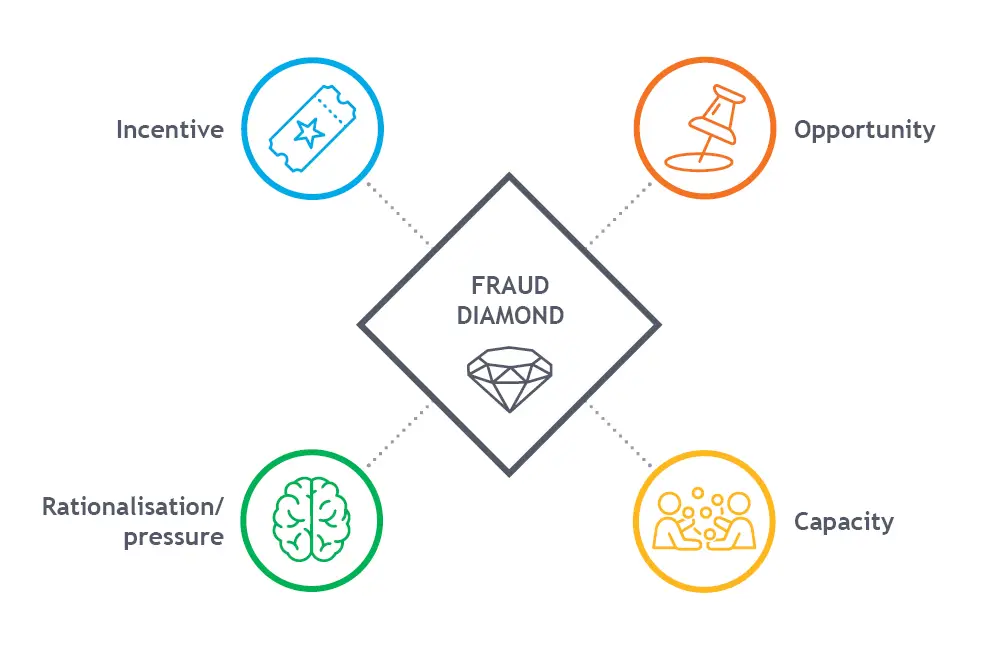In July 2022, it was reported that Zurich UK saw a 25% increase in fraudulent property claims, with the increase in the cost of living believed to be driving a range of fraudulent behaviours ranging from using insurance policies to make money to the inception of policies to cover life’s losses after the fact.
The Insurance Fraud Bureau (IFB) also issued a cost of living linked anti-fraud campaign, highlighting that they had seen a 17% increase in people being added to the national Insurance Fraud Register (IFR).
We foretold the impact of economic recession when we assessed the potential fallout and consequence of the COVID-19 pandemic in our Fraud and COVID-19: considering the impact of COVID-19 on insurance claims report, published in 2020.
Our report looked back at past recessions, considering the research of Professor Mark Button who studied fraud offences across previous recessions, finding:
- 1980 recession: 3% fall in GDP, 5.6% increase in fraud offences.
- 1990 recession: 1.7% fall in GDP, 9.9% increase in fraud offences.
- 2008 recession: 2.1% fall in GDP, 7.3% increase in fraud offences.
But why does this happen?
There are many academic explanations for fraudulent behaviour. The work of Wolfe and Hermanson in 2004 produced the widely used Fraud Diamond, which sets out the conditions present in which fraud typically occurs:
- Incentive/pressure: Where there is need or want that drives behaviour.
- Opportunity: Fraud is possible in the system/process/context.
- Rationalisation: The behaviour is worth the risk or justified.
- Capacity: The ability to recognise the opportunity and execute exists.

The rising cost of living certainly creates the pressure. Where job losses occur, the pressure is multiplied, whether on the part of insureds/claimants or others where there is mutual financial dependency with dual income households being the norm. Where there are children in the household, many jobs are casual or shift work, which are both more susceptible to recession.
Insurance policies (often those we are surrounded by everyday such as home, motor or employer liability insurance) present ready opportunities for fraud. Policies linked to other financial products, such as income protection, will also be affected. Zurich’s case studies on their own release are worth a read and illustrate the varied nature of how fraudsters are attempting to make financial gain. There is also a range of behaviours in third-party claims, such as fabricating events entirely, misrepresenting either events or losses to create liability that would not exist and exaggerating the impact of events (real or imagined).
Rationalisation is linked to need, but it is also connected to the perception of insurers and insurance policies.
The Insurance Fraud Taskforce report, published in January 2016, took into account the impact of insurers' and the insurance industry's perception among consumers and the wider population on fraud. The first recommendation of the report was to improve consumer trust in the insurance sector:
Recommendation 1: to improve consumer understanding of insurance products, the insurance industry should:
- Be more mindful of policy and other documentation following the FCA discussion paper on ‘Smarter Consumer Communications’. Good practice on this topic should be coordinated by the ABI.
- Increase promotion of the CII’s 'Made Simple' service.
- Roll out the ABI and BIBA’s ‘Code of Good Practice’ to help insurers and insurance brokers recognise and help potentially vulnerable customers.
Of course, insurers always put the principles of Treating Customers Fairly at the forefront of what they do, and they recognise the importance of the claims process stepping up to meet the needs of genuine customers at their moment of need. However, balancing these points of best practice against the need to maintain robust fraud controls is a fine balancing act.
The industry has developed mature and robust measures to counter fraud. However, fraudsters continue to learn and develop new techniques.
At the same time, our many blogs and webinars on claims farming and other enablers (such as claims management companies, solicitors, loss assessors, experts, etc.) provide ample capacity for insurance fraud to be perpetrated.
With so many households impacted by inflation and the rising cost of living, the potential for fraud will undoubtedly increase, as it is already happening for many insurers such as Zurich. It is generally the expectation that all lines of business will be impacted with both claims and underwriting affected. As a result, a fraud crisis looms as an ever-present shadow to wider economic challenges, and advance planning and reviewing existing fraud measures is likely to represent good value for the effort investment required.
 Insurance and reinsurance
Insurance and reinsurance
 United Kingdom
United Kingdom